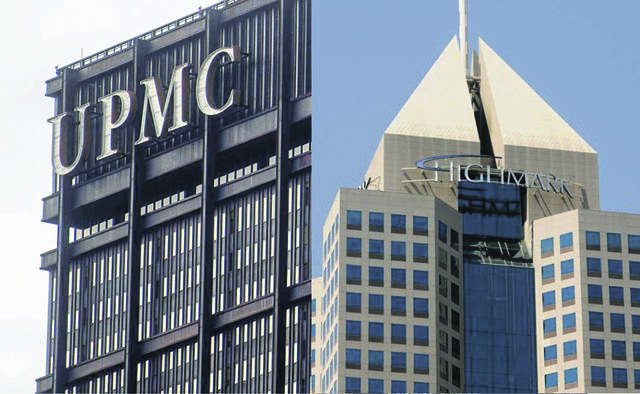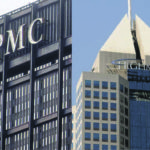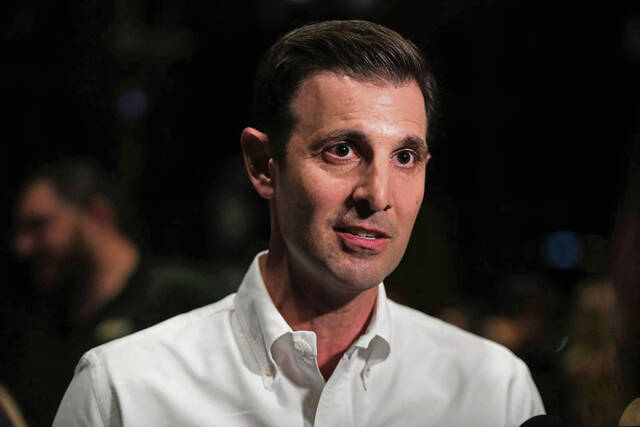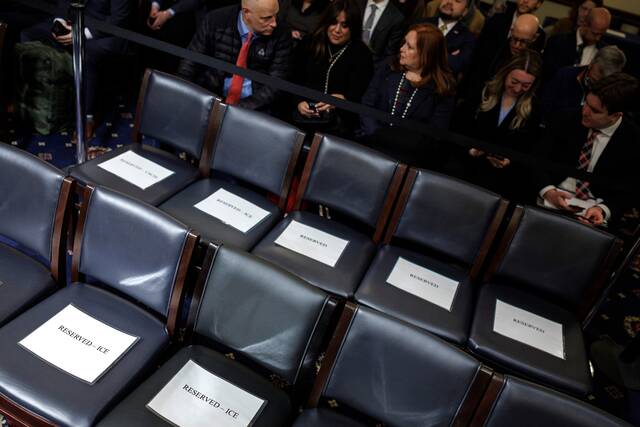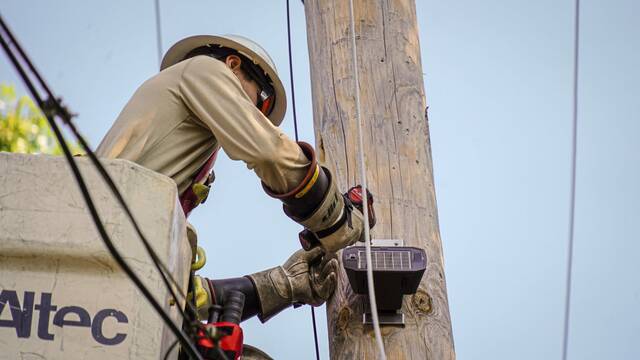HARRISBURG — UPMC’s looming prepayment rule for out-of-network patients demonstrates the health giant’s efforts to serve the public have “deteriorated” in the past five years, the Pennsylvania Attorney General’s Office argued Thursday before the state Supreme Court.
Bart DeLone, chief attorney general, told justices that the controversial prepay rule — announced in October and set to take effect in July for thousands of Western Pennsylvania patients — is among “unforeseen” reasons why urgent court intervention is necessary to halt this summer’s insurance network split of UPMC and rival Highmark.
During a one-hour showdown against UPMC at the state Capitol, DeLone urged justices to grant Attorney General Josh Shapiro the right to have a hearing on his petition to change the end date of a 2014 state-brokered consent decree between UPMC and Highmark.
Shapiro seeks an extension in the name of public interest, and he says that a general modification provision folded into the decree allows him to do so.
After inking that agreement, “The hope was that these two public charities would behave more like public charities,” DeLone said. “I think Highmark has done that. UPMC has not. They have focused more and more on profit and less and less on patient care.”
Pennsylvania’s top judges hinted at mixed views as they peppered attorneys from both sides with questions during the hearing at the Supreme Court’s chambers in Harrisburg.
It could be weeks before the justices issue a ruling, which will determine whether Shapiro’s broader efforts to use the decree as a vehicle to force changes upon UPMC can continue.
Joe Grace, spokesman for @PAAttorneyGen Josh Shapiro, said shortly after the SupCo arguments that his offices appreciated the opportunity to make their case, in hopes of ultimately preserving UPMC patient access.
— Natasha Lindstrom (@NewsNatasha) May 16, 2019
“Now we all have to wait for the Supreme Court’s determination.” pic.twitter.com/dGuL6I5Aha
Justice Max Baer described UPMC’s prepay-in-full rule as “pretty severe.”
But Baer also said he’s unsure whether a consent decree’s end date can be changed, likening it to the contract’s signature page as opposed to terms within a contract that can be altered.
Leon F. DeJulius Jr., attorney for UPMC, argued that the modification clause is not an “extension provision” and that Shapiro seeks not only to make minor changes but to rewrite the agreement in its entirety.
Justice David N. Wecht said he was unclear about DeJulius’ argument that the modification provision could only be applied to “moderate changes” or “small changes.”
“I don’t find in that argument any bright line that would be intelligible as a matter of contract law,” Wecht said. “There seems to be no bright line and seven different interpretations of how much change is too much change.”
The attorney general contends that a Commonwealth Court judge made a mistake in early April by ruling that the expiration date of the decree could not be changed.
UPMC spokesman Paul Wood said that the Supreme Court justices “asked some good questions, and we gave some good answers.”
But the fundamental issue is one of contract interpretation, and on the same day last year — May 16, 2018 — UPMC and Shapiro presented a similar question to Supreme Court justices, and determined there could not be an extension, Wood said.
Shapiro did not use the modification provision in last year’s case.
In court filings, UPMC’s attorneys further said that UPMC executives never would have signed the 2014 consent decree had they known its five-year term could be extended without their consent.
In a statement, Highmark reiterated its position in support of Shapiro and modifying the consent decree because it “is in the best interest of the communities we serve.”
DeLone told justices that soon after learning of UPMC’s prepay rule, which was announced in October, the Attorney General’s Office reached out to UPMC and Highmark in hopes of striking an agreement outside the courtroom.
DeLone said Highmark agreed this past fall to modifications proposed by Shapiro while UPMC did not.
UPMC gave its final “no” in mid-January, and Shapiro filed his legal petition accusing UPMC of breaching its fiduciary duties and violating charity and consumer protection laws in the first week of February.
Shapiro spokesman Joe Grace said the Attorney General’s Office “really appreciated the opportunity” Thursday to make its case before the state’s highest court on “behalf of patients and consumers and access to affordable health care in Western Pennsylvania and throughout Pennsylvania.”
“Now, we all have to wait for the Supreme Court’s determination,” Grace said.
Under the 2014 consent decree, Highmark-insured patients will become out-of-network at most UPMC hospitals July 1.
UPMC further plans to enforce a new rule that requires out-of-network patients to obtain a cost estimate and prepay, in full, for all nonemergency services before receiving treatment.
Highmark has asked UPMC to reconsider the rule and called it “unnecessary.”


